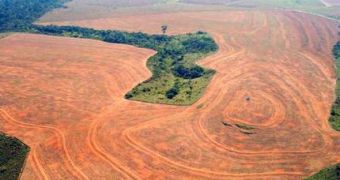According to a new Greenpeace Australia Pacific report, local communities in Papua New Guinea have lost most of the forests they need in order to make a living to various foreign logging companies and landholders.
Provided that Greenpeace's information is accurate, this situation has been going on for as long as a century, and throughout this period of time, 5,1 million hectares of land and forests found themselves changing ownership.
As well as this, the organization accuses the local government of being directly involved in allowing said companies and landholders to use Papua New Guinea's natural resources to meet their financial goals, regardless of how this impacted on indigenous people.
More precisely, high officials in this part of the world are to be held responsible for deliberately implementing faulty and even corrupted forest and land management policies, officially known as SABLs (Special Agricultural and Business Leases).
Greenpeace's official website states that, in 2011 alone, log exports from Papua New Guinea grew by as much as 20%, an increase which is to be entirely attributed to government-approved SABLs.
The organization's report on this status quo also argues that, from 2006 up until nowadays, 1,5 million cubic meters of whole logs have been taken out of Papua New Guinea in this blame-worthy manner, and that the foreign companies involved in this trade gained a total of $145 million (about €117 million).
Interestingly enough, most of these logs were sent to China.
As was to be expected, Greenpeace's “Up for Grabs” report also makes a case of how, as a developing country rich in natural resources, Papua New Guinea must find a way to balance economic growth and ecological sustainability, otherwise the natural habitats in this part of the world will soon be destroyed beyond any possibility to recover.
From where we stand, given the fact that many of our planet's forests have already been cut down for various purposes, it is indeed compulsory to better manage the ones we still have.

 14 DAY TRIAL //
14 DAY TRIAL //